Myanmar - Module 3 of ASEAN CSR Fellowship (2017)
For Module 3 of the ASEAN CSR Fellowship, ACN worked with the Union of Myanmar Federation Chambers of Commerce and Industry (UMFCCI) as its local partner. Myanmar presents a unique context as a country at the turning point of its history - with ongoing political and economic reform, a new investment law which empowers the government to keep out irresponsible investments, as money continues to pour into the energy, mining, garment and other 'high-risk' industries, and as Burmese 'repats' return to start businesses after lifted sanctions.
In this context, Fellows focused on the following questions for Module 3: Will they be able to undo years of corruption by the military government? Will the development of its tourism industry also come with the common ills such as sex tourism? Will proceeds from its oil fields trickle down to the poorest? Will post-conflict states be able to recover and benefit from business activity?
Highlights in Myanmar:
-
Learning from high profile advocates of CSR in Myanmar: Daw Khine Khine Nwe – Joint Secretary-General, UMFCCI, Prof. Dr. Aung Tun Thet - Chairman, Global Compact Network Myanmar; Mr. Martin Pun - CSR Head of YOMA Strategic Holdings Group
-
Discussion on responsible investment with First Myanmar Investment Company, Myanmar Investment Commission and others
-
Site visit to Coca Cola bottling plant
-
Site visit to Best Garment Factory
-
Learning about business and human rights at the Myanmar Centre for Responsible Business (MCRB)
-
Workshops on CSR buzzwords, sustainability reporting, responsible public procurement
Day 1 (3 July 2017) - Understanding CSR in Myanmar
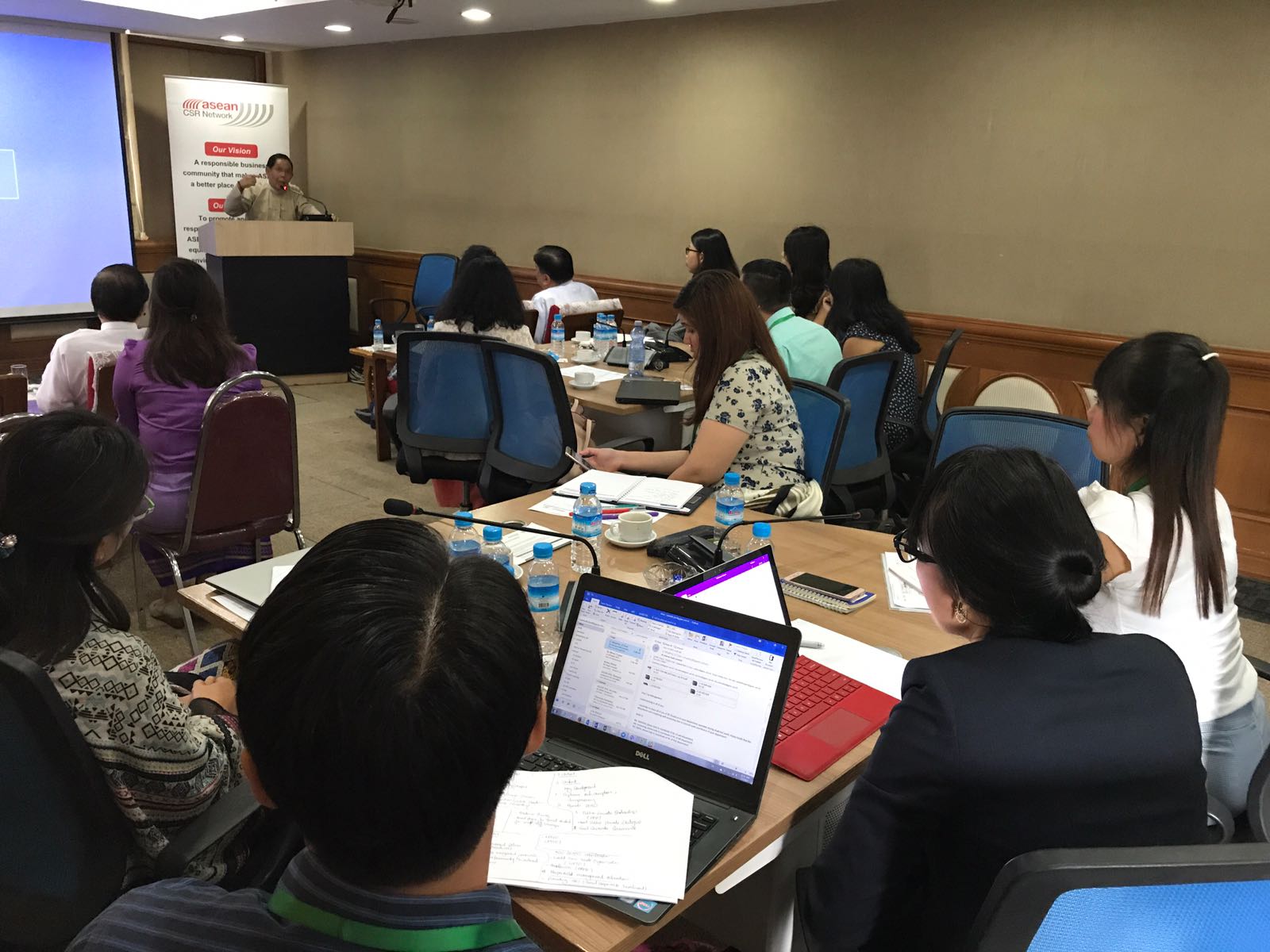
The morning session started with a session by Prof Dr. Aung Tun Thet (Chairman, Global Compact Network Myanmar) who provided an overview about the role of the business community in Myanmar, especially during this transitional period of democratisation. He spoke on the particular aspects of Myanmar's culture which made it unique, including the culture of corporate philanthropy being deeply embedded among the business community. Importantly, he commented on the baggage of the past which continues to affect CSR in Myanmar - there remains a strong reliance on top-down approaches due to years of authoritarian rule, as well as historically-complex issues such as crony capitalism and land rights. Yet, good news remains as the new government seems to have the political will to combat corruption, and a strong drive from the business community to participate in the UN Global Compact Network.
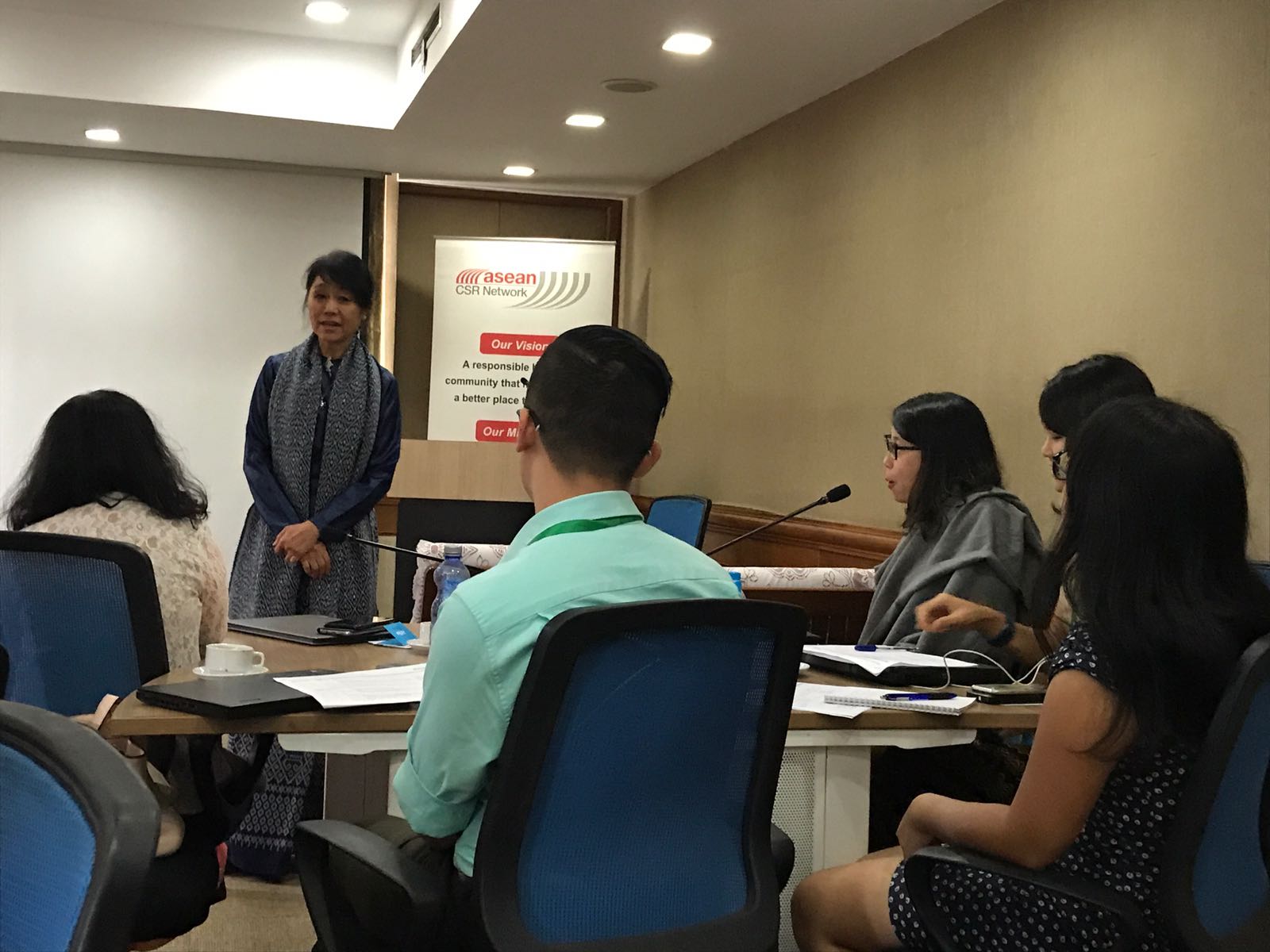
Next was an introduction to UMFCCI by U Zaw Min Win (Chairman, UMFCCI) and Daw Khine Khine Nwe (Joint Secretary-General, UMFCCI; Trustee, ACN), who provided an overview of how UMFCCI promotes responsible business. They added that other key developments in Myanmar include: A large number of companies signing up to Global Compact Network Myanmar, interest from UMFCCI to promote responsible business, a new coalition called Business 4 Peace (B4P) focusing on responsible business in post-conflict areas, a keen interest from companies in ISO 26000 and an interest from academia to introduce 'Principles of Management' Education to train future business leaders in business ethics.
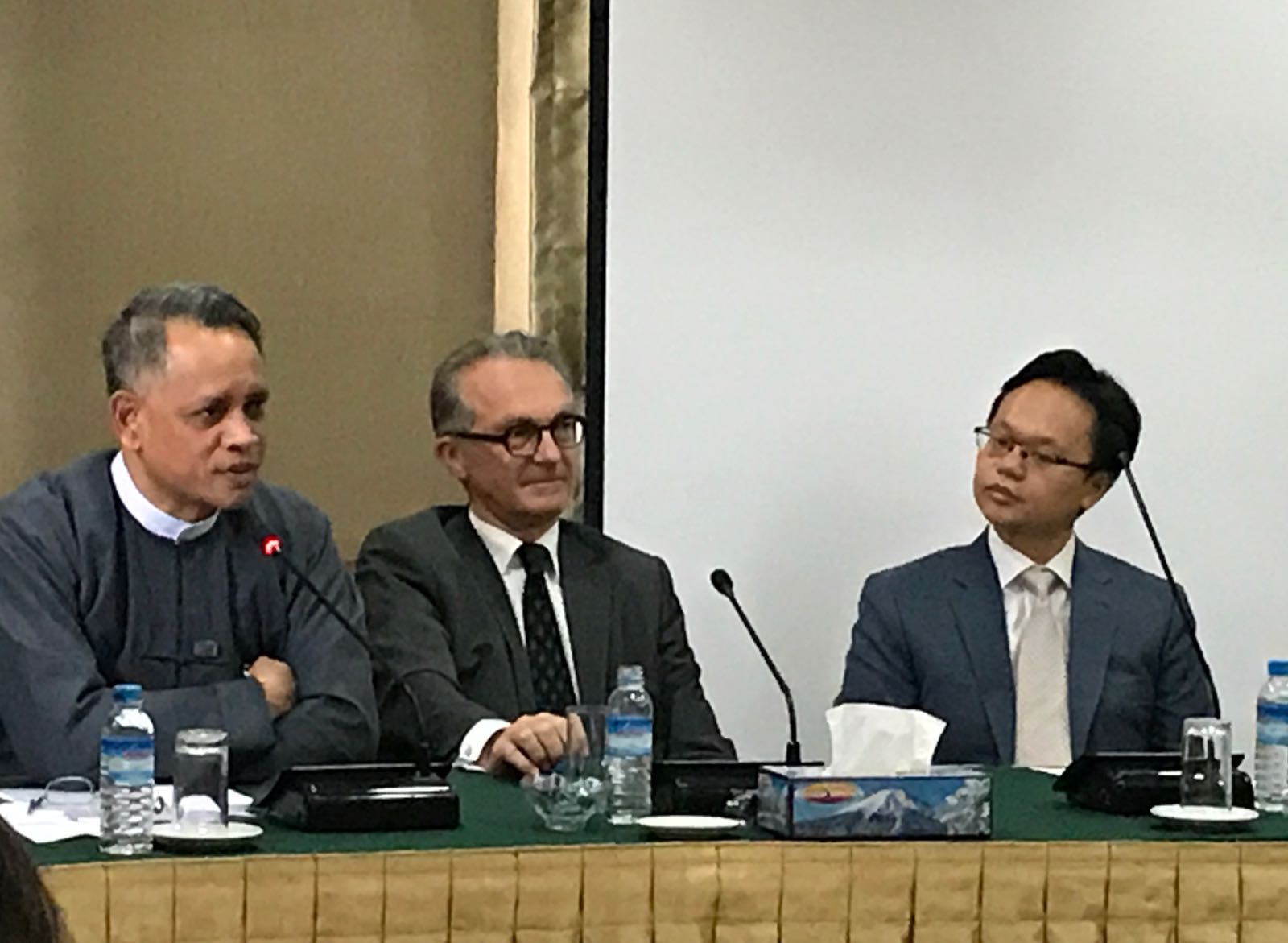
The afternoon session featured a panel discussion on responsible investment in Myanmar by the following speakers:
- Mr. Aung Naing Oo (Director General, Directorate of Investment and Company Administration, Secretary, Myanmar Investment Commission)
- Mr. Melvyn Pun (CEO, First Myanmar Investment Company)
- Mr. Xavier Preel (Country Director, TOTAL)
Responsible investment has been an important topic for Myanmar since 2012, communicating to potential investors that the government was seeking quality investments – for example, which promoted export, featured technological transfers. The discussion featured questions such as how Myanmar could attract responsible investors which could benefit the country in an inclusive manner, what the key challenges in responsible invesment in Myanmar were, and what were the key interventions that have been successful to the country. Speakers shared that on 18 Oct 2016, a new investment law came in place where investors were required to provide quarterly reports on their performance in responsible business, as well as conduct Environmental Impact Social Assessments which must include community consultations. Another positive development is that the private sector is gaining interest and awareness in CSR. For example, the Myanmar Property Investment Award now includes an award for CSR.
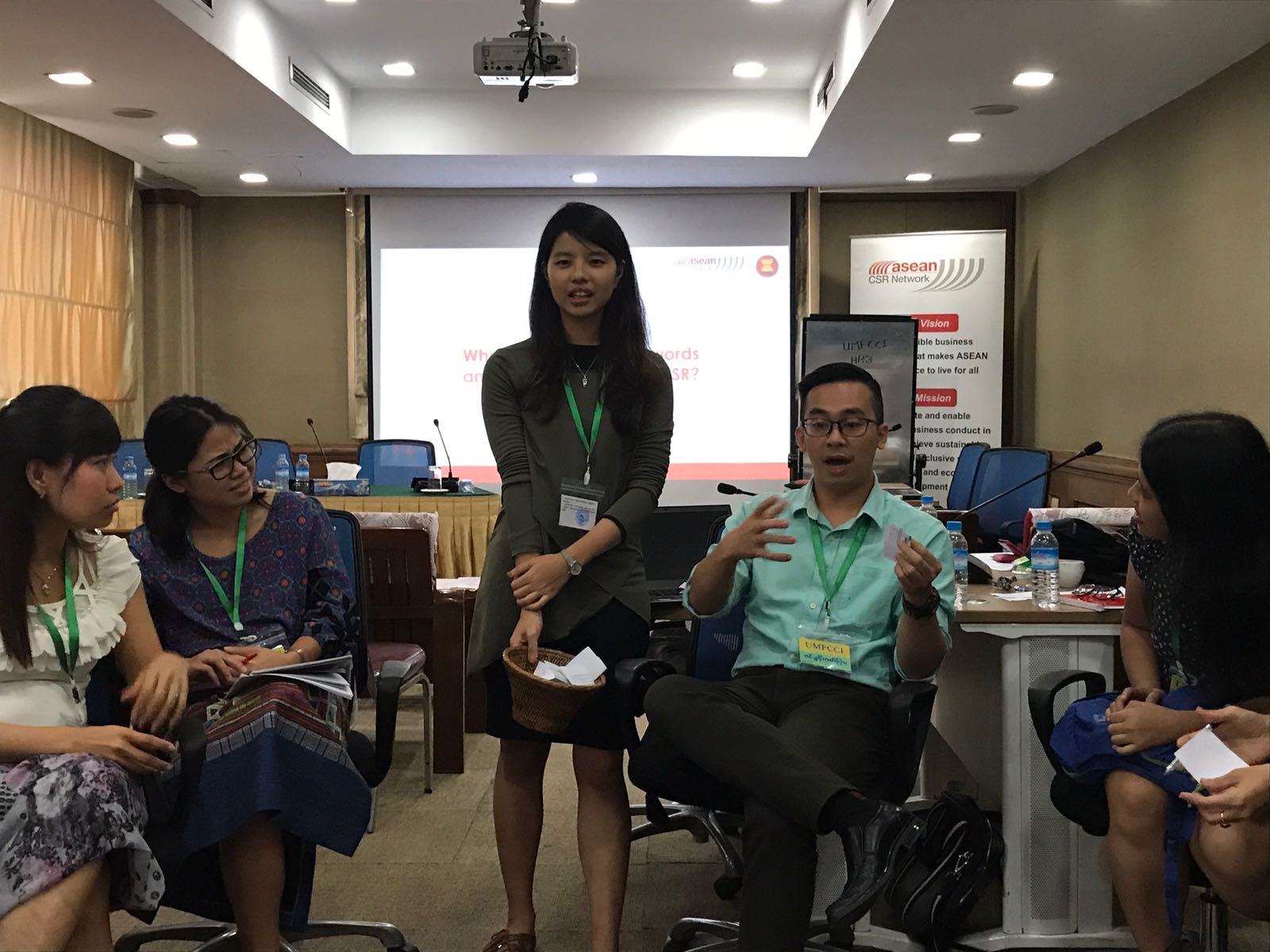
The day ended with a workshop on CSR concepts such as: "Creating Shared Value (CSV)", "social license to operate" and "FTSE4Good". Which of these 'buzzwords' are here to stay and which are simply fads? What are the latest trends in CSR?
Day 2 (4 July 2017) - Business & Human Rights, Deep Dives in the Energy & Extractive Industry
In the morning of Day 2 of the ASEAN CSR Fellowship in Myanmar, the Fellows had a conversation with Myanmar ‘Returnees” to learn how the new wave of returning Myanmar businessmen are becoming Myanmar’s pioneers of responsible business. There is a strong desire by the people of Myanmar living overseas to return home, as long as quality employment is available. According to the speakers, there is a genuine desire to return home to contribute to the country’s rise from its slumber after political/economic reform. For the Pun family, one of the most prominent business families in Myanmar, they had clear reasons for returning after sanctions were lifted – to build up the nation. They hoped to do this by providing employment opportunities and ensuring that the company was not corrupt. By 2012, they had 46 companies from banks to hotels, hiring up to 4,000 people. However, challenges remain for ‘repats’ to reintegrate into Myanmar society, as they may no longer speak the local language and usually command a much higher salary. Further challenges also face entrepreneurs hoping to return home to start businesses, as the infrastructure supporting business activities is relatively weak. For example, there are barriers in place for exporting goods. SMEs also face the problem of a lack of support to move up the value chain.
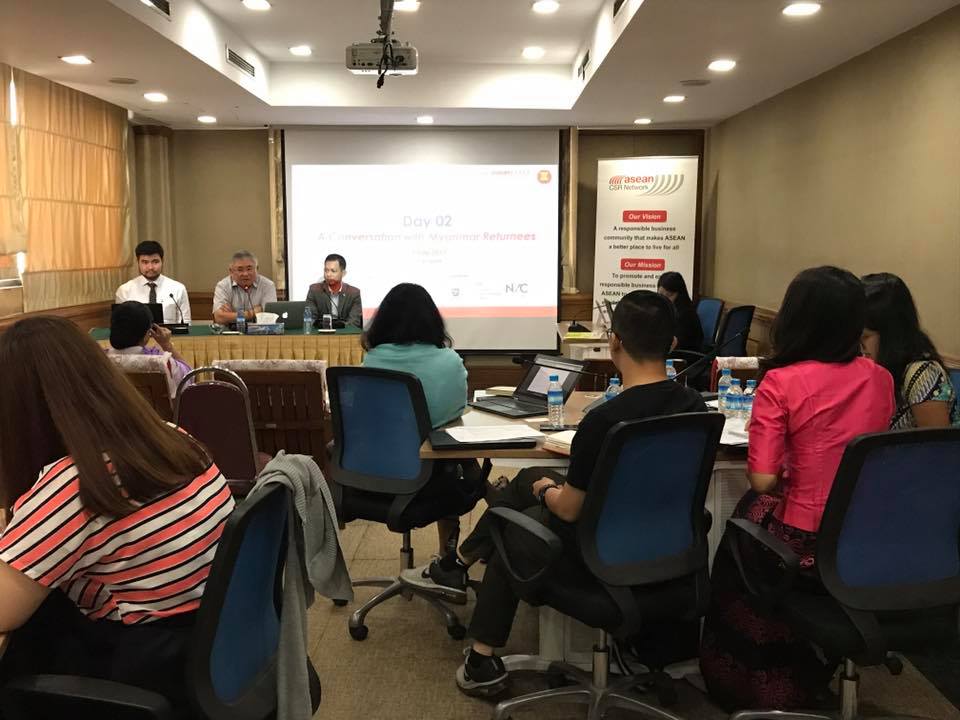
Mr Martin Pun, CSR Head of YOMA Strategic Holdings Group (photo middle), his son, Mr. Calvin Pun, a social entrepreneur (photo: left), and Mr Zaw Htoo Aung, Market Development and Government Affairs & Policy Leader, GE Myanmar (photo: right) were on panel to provide their experiences and lessons they hoped the country would adopt in order for it to harness the potential of private sector activity.
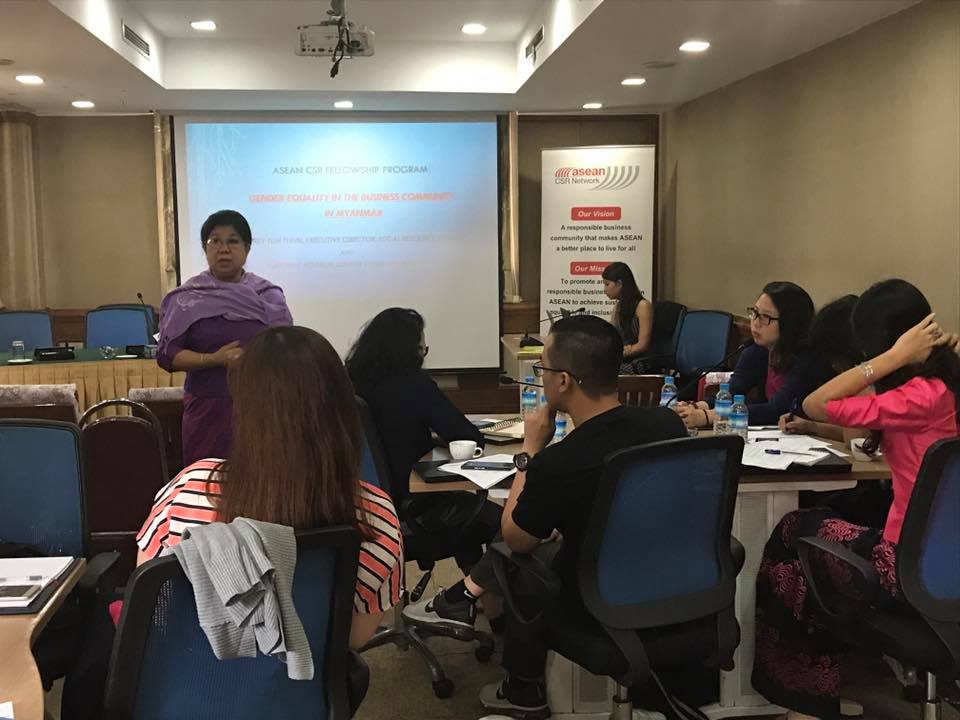
The second session featured Daw Pansy Htun Thein, National Advisor to the Gender Equality Network (GEN), who shared with the Fellows on the status and challenges of gender equality. While the country has indeed taken many steps to address the issue, more had to be done to ensure enforcement. She shared that women are still under-represented in the workforce and that the majority were unskilled and given unequal pay for equal work. The civil society movement – including advocacy for women empowerment – received a large boost of support after Cyclone Nargis. After the disaster, many cases of abuse against women occurred and this ironically raised alarm bells about the need to tackle these previously-hidden issues. At the start, ‘women protection’ served as an entry point for discussions rather than the more sensitive term of ‘gender equality’. Since then, civil society dialogue opened up after further economic and political reforms made it easier for women advocates to speak up.
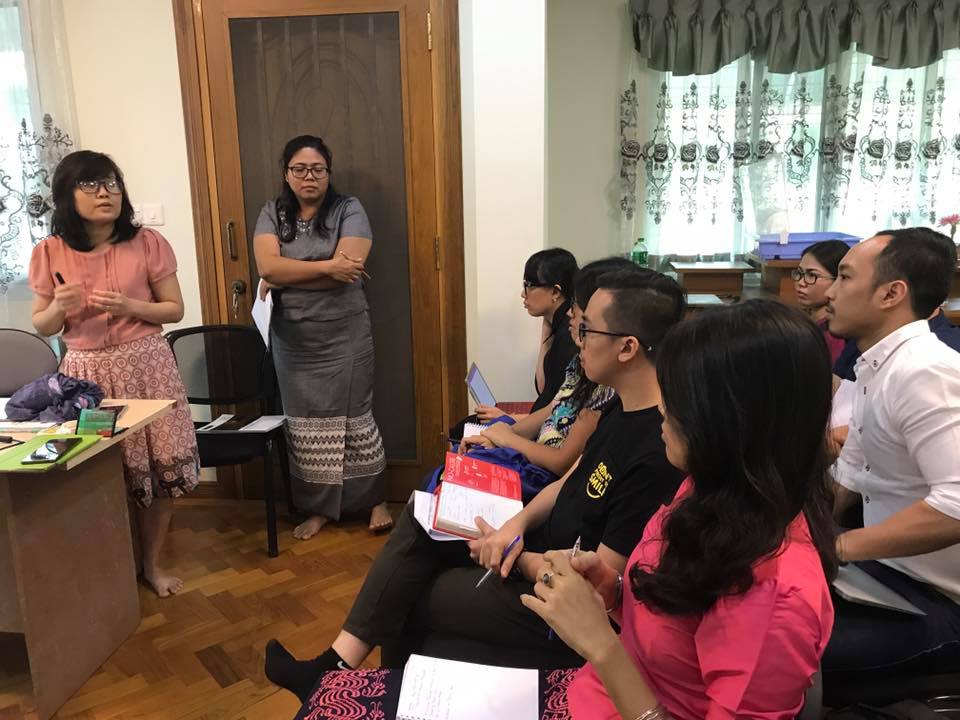
In the afternoon, the Fellows visited the Myanmar Center for Responsible Business (MCRB) to learn about the key business and human rights issues in Myanmar, with a deep dive in the energy and extractive industries. MCRB has conducted in-depth impact assessments in selected industries, including oil & gas, tourism, ICT and mining. They shared that the key business and human rights issues in Myanmar include land issues, such as forceful land acquisition for agribusiness and extractive industries, and labour rights issues, such as strikes about long working hours, low wages and health and safety in certain industries.
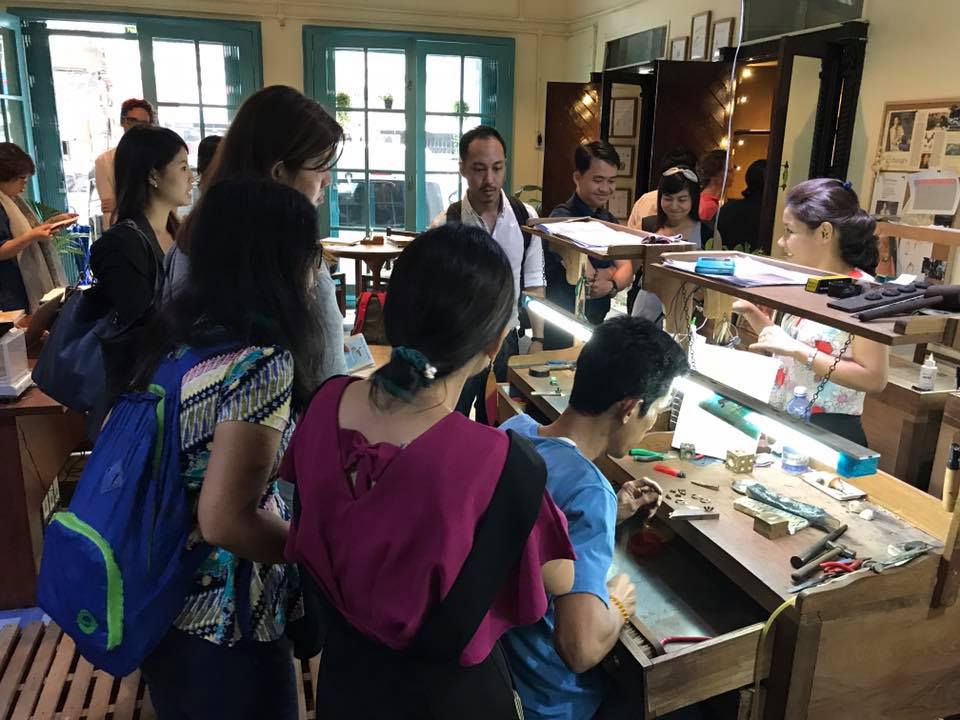
For the final session of the day, the Fellows visited Turquoise Mountain’s workshop, a social enterprise working hard to be Myanmar’s first retailor of responsible-gold, while hiring Myanmar craftsmen to ensure the continuity of Myanmar’s traditional jewellery-making.
Day 3 (5 July 2017) - Responsible Tourism
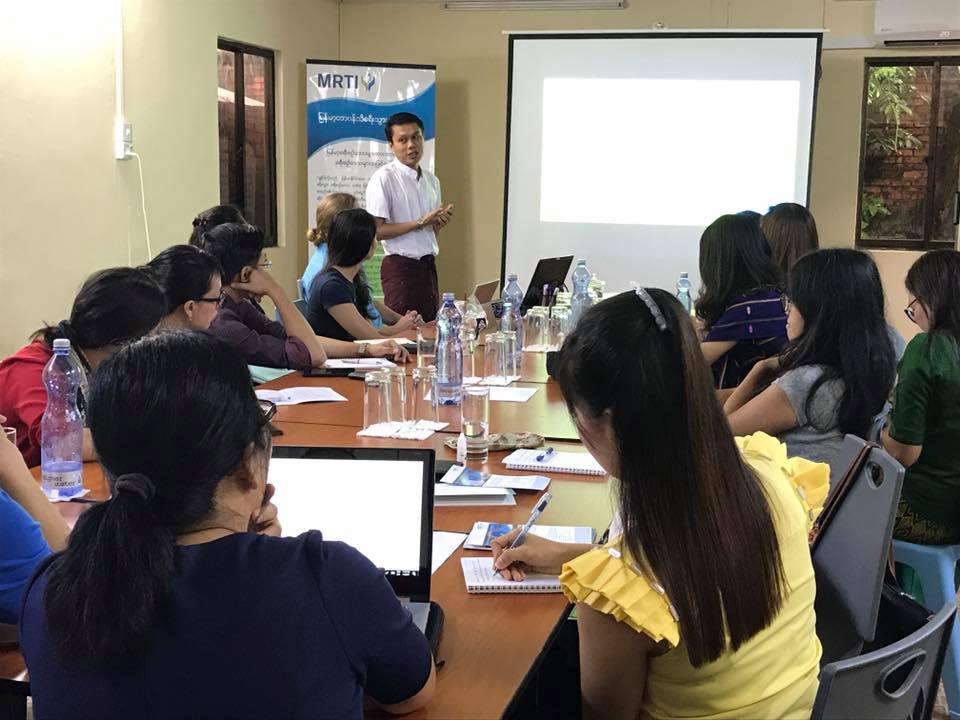
The 3rd day started with a visit to the Myanmar Responsible Tourism Institute (MRTI). Discussions surrounded Myanmar's large potential for tourism, which - if harnessed in a responsible manner - can maximize the benefits for communities and the economy. As the number of businesses involved in the tourism industry continued to grow, it will be increasingly important for the government and other stakeholders in Myanmar to ensure tourism can help empower local communities, create livelihoods, while having a strong focus on environmental protection. A situational analysis conducted by MRTI revealed that many problems currently exist, including the sexual exploitation of domestic workers who are mainly from ethnic minority groups, and young brides being sold in the ‘virgin market’ to wealthy Chinese in the Myanmar-Chinese border. If Myanmar does not have a consolidated effort to stem the flow of these practices, it could open the floodgates to further problems such as child sex tourism.

The rest of the day saw the Fellows spending the afternoon joining a walking tour in Yangon. They visited and learned about the history of the Bogyoke Aung San Market and Shwedagon Pagoda (Golden Pagoda).
Day 4 (6 July 2017) - Deep Dives in the F&B and Garment Industry
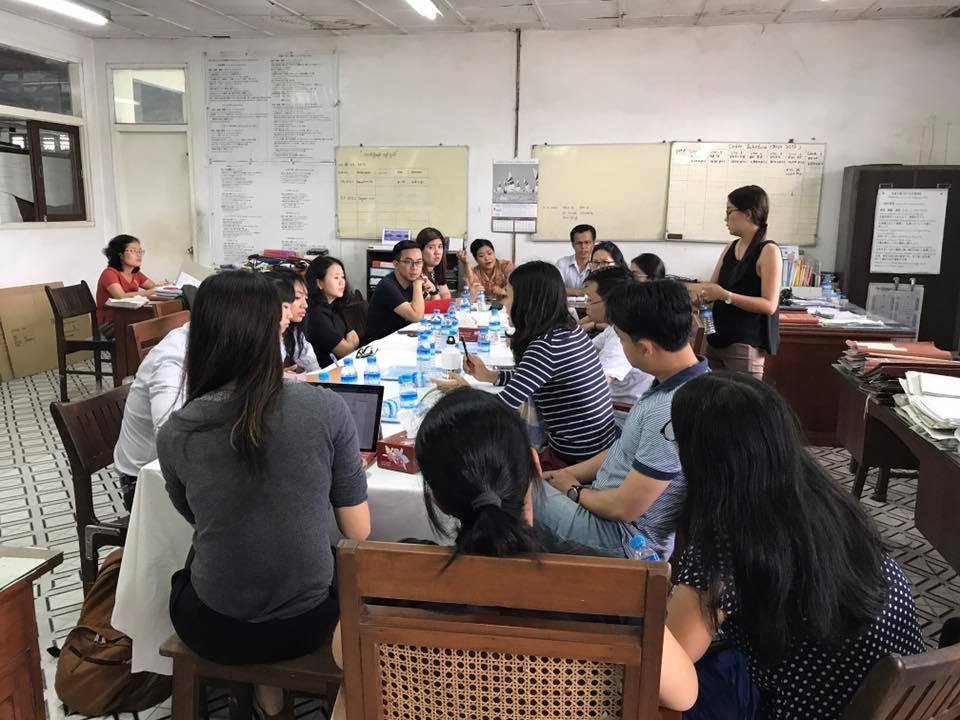
Fellows visited Best Garment Factory in Hmawbi to learn about the garment industry. The garment industry often faces criticisms for the lack of protection for factory workers, driven by low returns due to stiff competition for low prices of garments. In many factories, the staff turnover rate is high and protests are not uncommon. In general, it was discussed that European brands usually demand a higher standard of protection for workers, due to pressure from NGO groups.
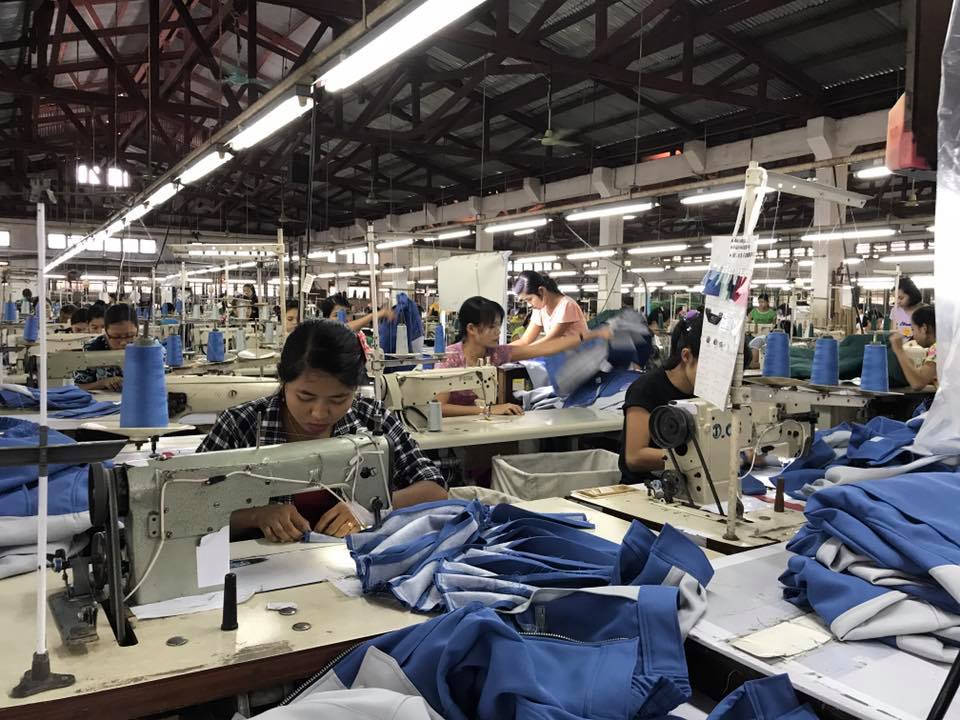
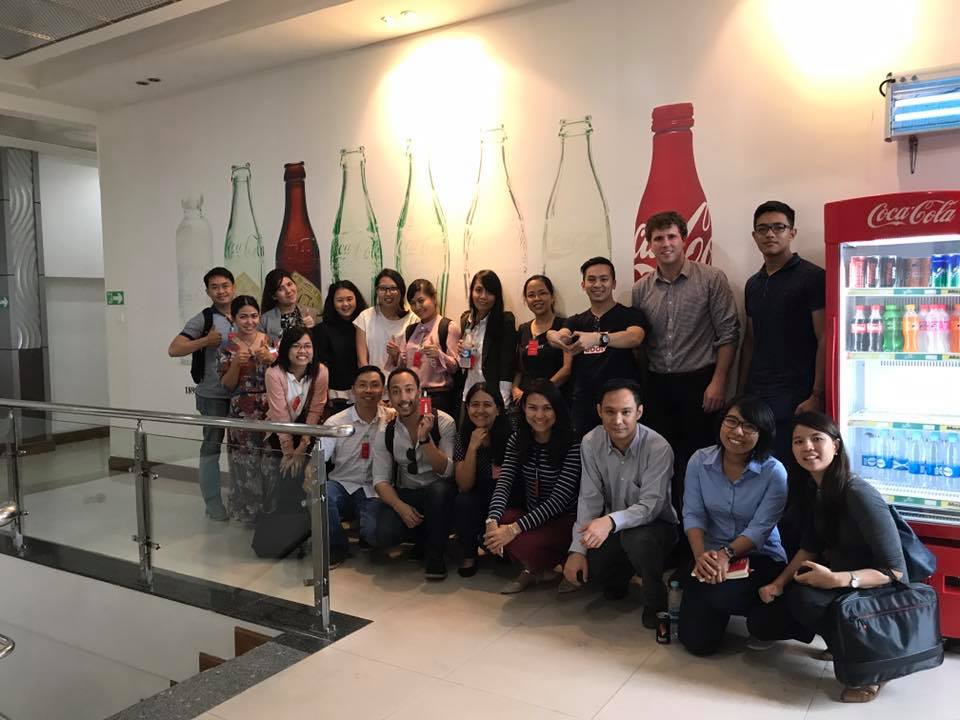
Fellows then visited a Coca-Cola botting facility to learn about the MNC's best practices in responsible business. They were met by Mr. Alexander Chapman, Head of Public Affairs and Communications of Coca-Cola Pinya Beverage Myanmar. He highlighted the importance of earning the 'social license to operate’, in order to ensure the long term sustainability of the business. In order to attain this, he shared that Coca-Cola embarked on a high-level framework which includes the following key steps/actions: mapping out business value chains and impacts; developing policies, procedures and internal controls; investing in infrastructure, machinery and technology; having transparency in operations (e.g. reporting); engaging stakeholders in discussions; and participating in community and social business programmes.
Day 5 (7 July 2017) - Looking Ahead
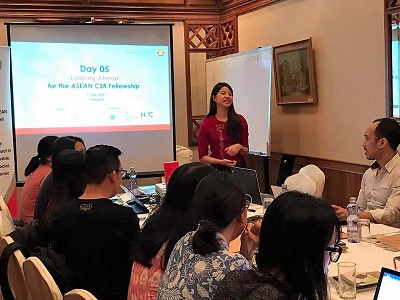
On the final day of the ASEAN CSR Fellowship in Myanmar, the Fellows spent the morning reflecting on the key things they have learnt from the Fellowship, and discussing the next steps for the Fellowship. This includes their Capstone project presentation and setting up the Fellowship Alumni.
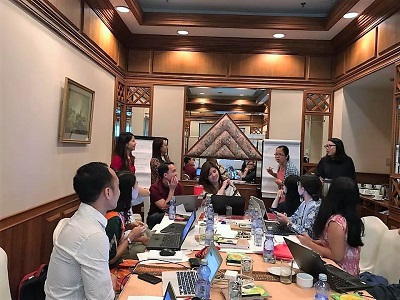
Another workshop was held on Sustainability Reporting, tackling 3 key questions: Why do businesses report? What should they report on? And what distinguishes an outstanding report from the rest? Fellows also compared sustainability reports based on GRI standards, and shared their analysis on the strengths and weaknesses of each report.
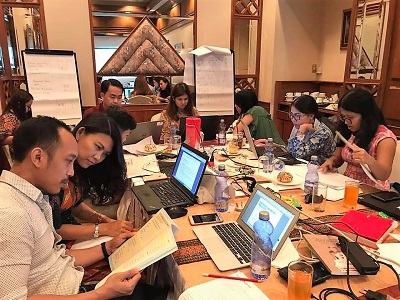
For the final session, Fellows took part in a 'crony mapping' exercise which highlighted the harsh reality in ASEAN that business and political circles too often overlap. Fellows split into their respective countries, mapping out power relations within well-known families in their own country, and analysing where the risks of corruption lie. They also discussed potential solutions to cronyism, including the adoption of international standards on transparency and public procurement.

The ASEAN CSR Fellowship in Myanmar concluded successfully with a closing dinner hosted by the Joint Secretary General of the Union of Myanmar Federation of Chambers of Commerce and Industry (UMFCCI), Daw Khine Khine Nwe at Karaweik Palace, where Fellows were treated to traditional Burmese cultural dances and local cuisine.
The Fellowship will resume in September 2017, with the last training module in Manila held to coincide with the ASEAN Inclusive Business Summit.
